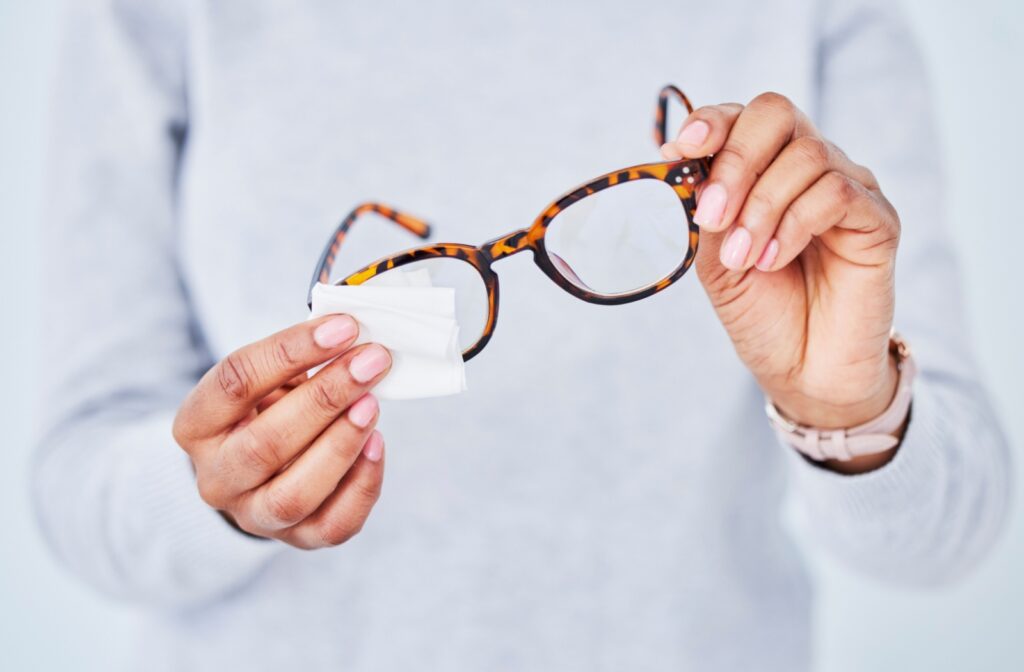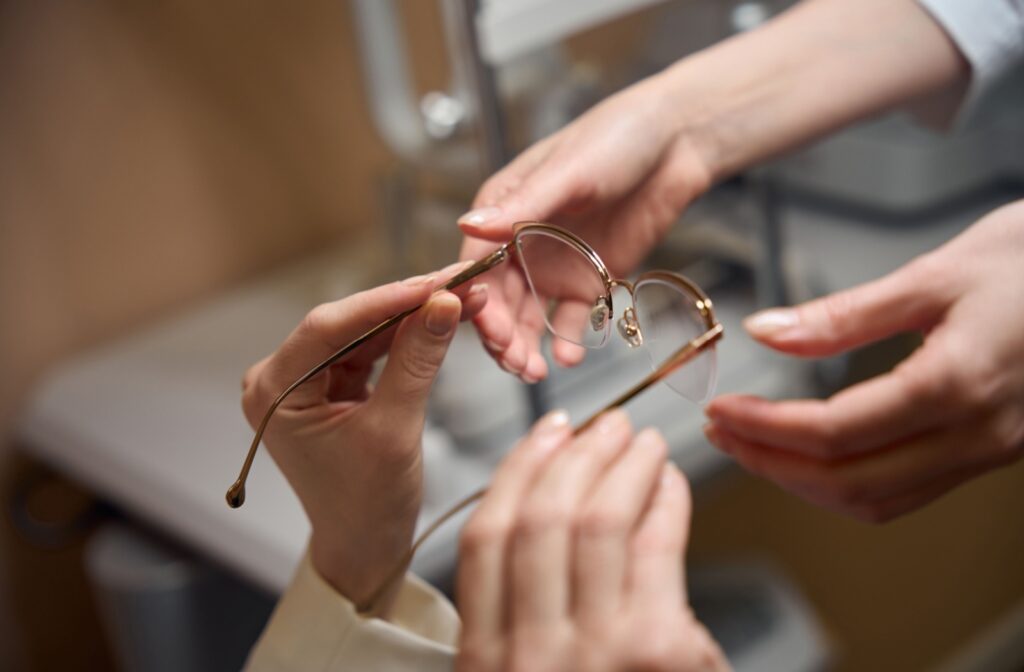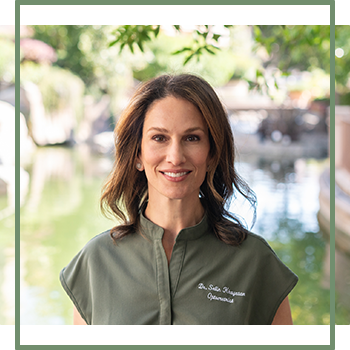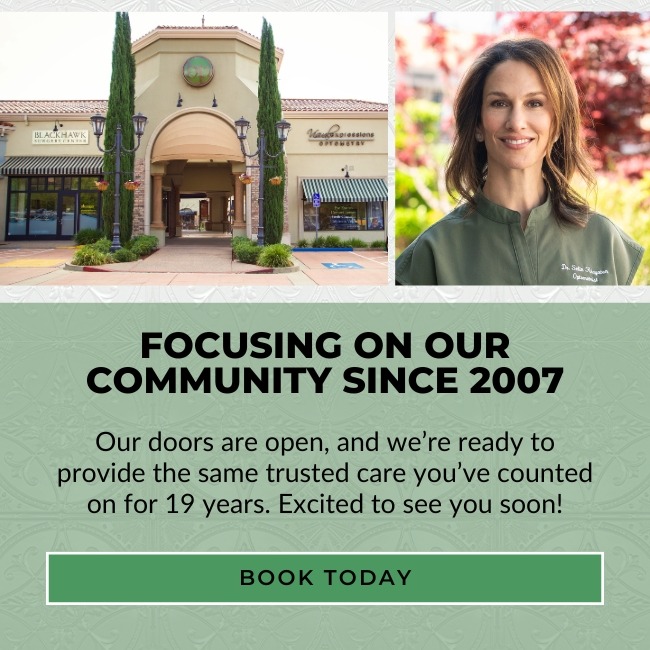Your glasses aren’t just for clear vision; they’re an essential part of your daily life and personal style. The perfect pair offers comfort, clarity, and a touch of personality. However, over time, you may notice that your glasses don’t work as well as they once did, or your optometrist may recommend you get an upgrade at your next eye exam.
Knowing when to replace your glasses can significantly enhance your vision and comfort. It’s recommended that you get new glasses every 1-3 years. Some common reasons why it might be time to upgrade your glasses include changes in prescription, wear and tear, and changes in your lifestyle.
How Often Should You Replace Your Glasses?
If you wear your glasses every day, it’s important to keep them up to date. Regular eye exams help ensure that your prescription suits your evolving needs and that your glasses are comfortable to wear. Typically, most people find it beneficial to update their glasses every 1–2 years, but your exact timeline may vary depending on several factors.
Here are some common reasons you might need new glasses:
- Changes in prescription: Subtle shifts in your vision over time can make your current lenses less effective.
- Wear and tear: Daily use can take a toll on your lenses and frames, reducing their functionality and comfort.
- Lifestyle adjustments: Hobbies, career changes, or increased screen time may call for glasses with features like blue light filters or more durable frames.
Why Do Glasses Prescriptions Expire?
Your glasses prescription isn’t permanent—your eyes change over time. Factors like aging, strain from digital screens, and natural optical development can affect your vision. While some people’s prescriptions remain stable for years, others may notice their glasses gradually become less effective.
Signs it might be time to update your prescription include:
- Blurry vision when focusing on distant or close objects
- Frequent eye strain or discomfort
- Headaches caused by overcompensation from your eyes
- Difficulty maintaining focus or feeling that your vision is “off”
These symptoms indicate it’s time to schedule an eye exam. Regular visits to your optometrist ensure that your glasses continue meeting your needs and supporting your visual health.
Recognizing Glasses Wear & Tear
From accidental drops to everyday use, your glasses go through a lot. Over time, even high-quality eyewear can show signs of wear. Regularly inspect your glasses for issues such as:
- Scratches on the lenses that impair clarity
- Loose, bent, or uncomfortable frames
- Worn-out nose pads
- Glasses that slip or don’t sit correctly on your face
- Reduced clarity, even after cleaning the lenses
These signs mean it might be time for an upgrade. Worn or damaged glasses can affect your vision and comfort, making replacement the better option.
Staying Stylish & Tech-Savvy
Your glasses are a reflection of your style. If you’re ready for a change, updating your frames can give you a fresh look that complements your personality. Whether you’re drawn to bold statement pieces or sleek minimalist designs, choosing new frames can be an exciting opportunity to redefine your style.
An upgrade isn’t just about aesthetics, though. Advances in lens technology mean new glasses often come with additional benefits, such as:
- Blue light protection for extended screen time
- UV resistance for outdoor wear
- Anti-glare coatings for enhanced clarity
- Lightweight and durable materials for lasting comfort
By updating your eyewear you gain access to the best of both fashion and functionality.
Adapting to Lifestyle or Career Changes
Your daily routine plays a significant role in determining your eyewear needs. For example, if you’ve started a new job that requires long hours in front of a computer, glasses with anti-reflective coatings are a fantastic way to reduce digital eye strain. Similarly, physical activities or increased outdoor exposure might require durable, scratch-resistant lenses or transitional options that adapt to changing light.
Ensure your glasses support your lifestyle by choosing frames and lenses designed for specific activities like sports, travel, or extended screen use. Tailoring your eyewear to your needs enriches your daily experience and keeps your vision sharp wherever life takes you.
Simple Tips to Care For Your Glasses

Caring for your current glasses can help extend their lifespan and keep them functioning like new. Here are some simple yet effective maintenance tips:
- Store your glasses in a sturdy case when they’re not in use.
- Clean your lenses regularly with a microfiber cloth and lens cleaner to prevent scratches.
- Avoid placing your glasses lens-side down on any surface.
- Keep your glasses away from extreme heat, as it can warp frames or damage lenses.
- Check for loose screws periodically and tighten them with a small screwdriver if needed.
- Use both hands to put on or remove your glasses to prevent misalignment.
By following these steps, you help protect your glasses from unnecessary damage and ensure they last you until it’s time for a new pair.
Rise to Your Potential
Your eyewear plays a vital role in your daily life. Regularly updating your glasses to match your prescription, lifestyle, and style preferences is the key to enjoying their full benefits.At Visual Expressions Optometry, we’re here to make the process of replacing your glasses easy and enjoyable. Whether it’s time for a fresh look or a new prescription, our dedicated team will guide you every step of the way. Book an eye exam today and discover how your eyewear can transform your vision and elevate your style.




